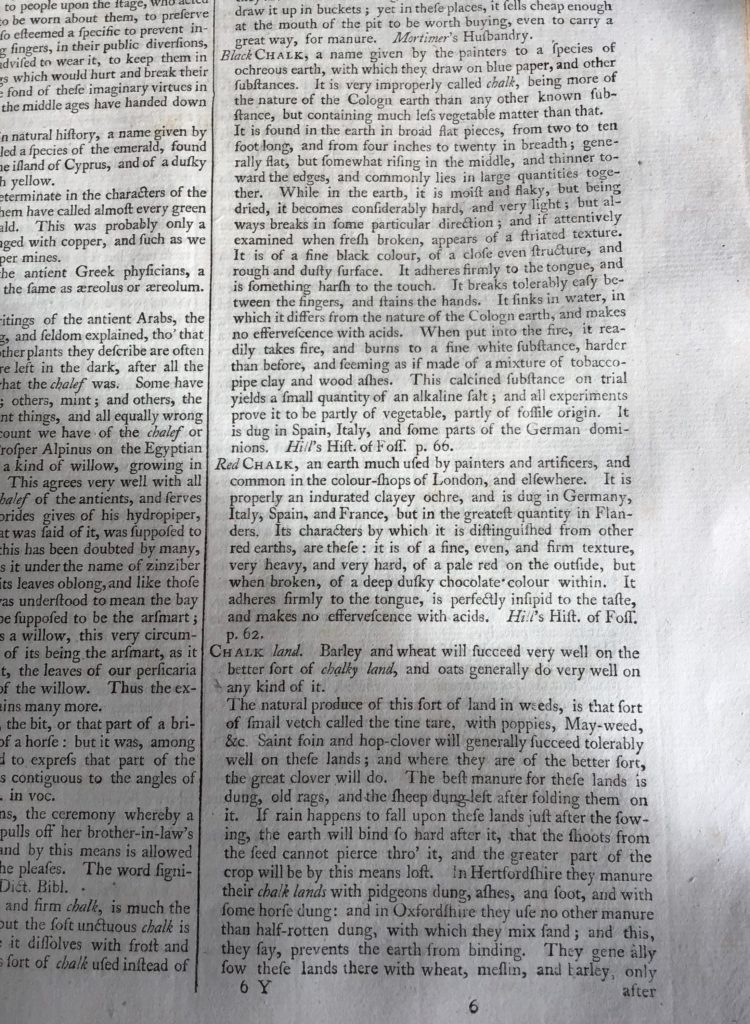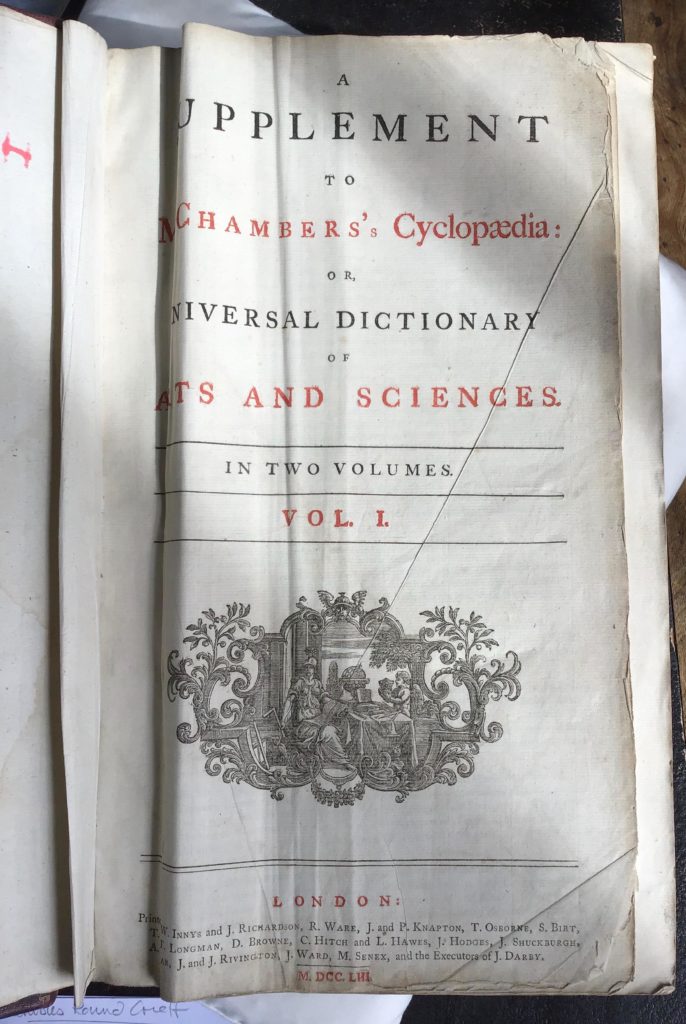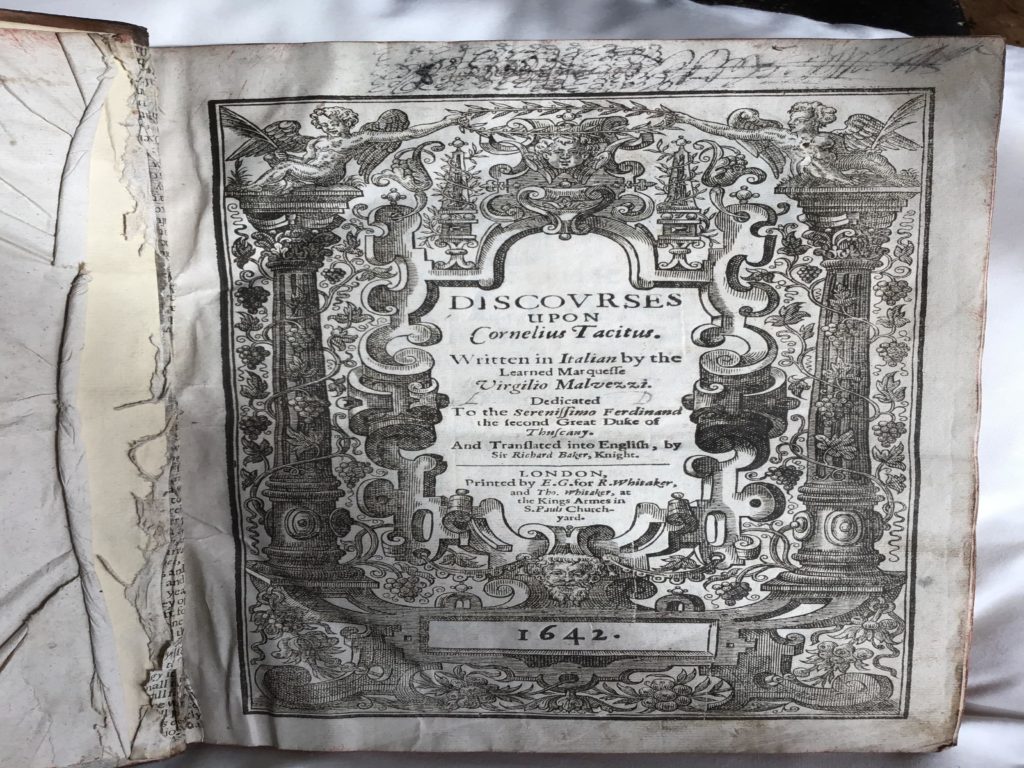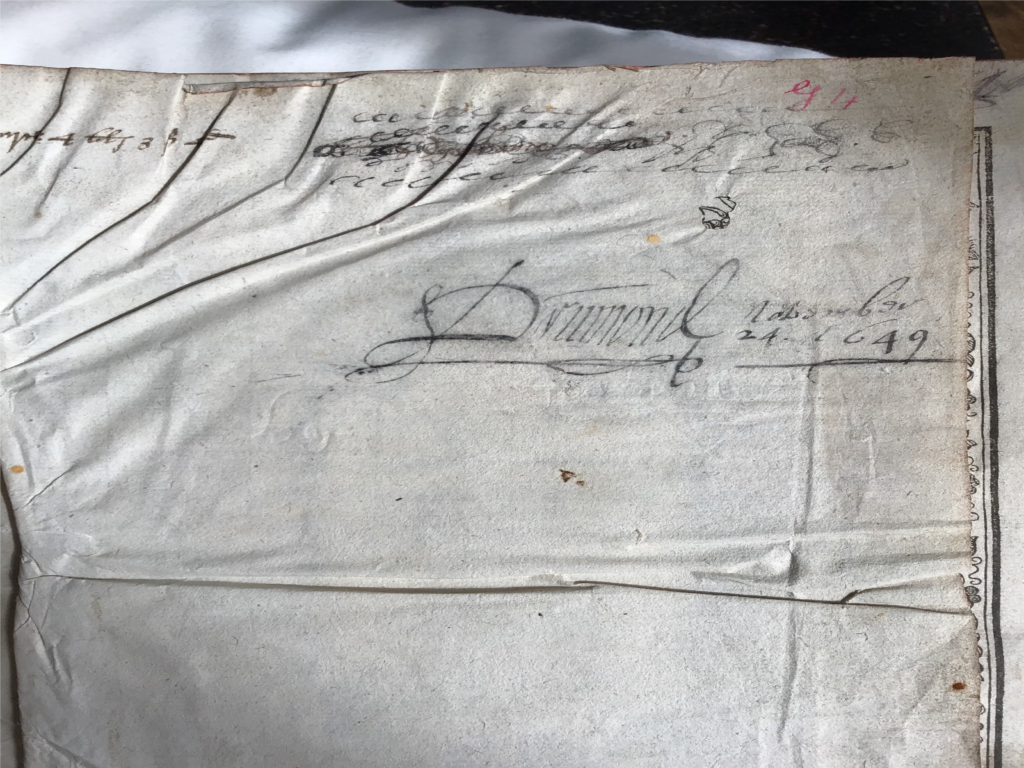When browsing the books at Innerpeffray it is a rare coincidence for us to come across one that
was written by a borrower. As of now, we know of only two, possibly three, people who fit this
scenario and Sinclair Korner is one of them.
Searching through the Borrowers Register for potential candidates for ‘Borrower of the Month’ I
added Dr Korner and his family, from Crieff, to my list for further research. At that stage, the name
did not register as one I had seen in a little book, entitled ‘Rambles Round Crieff’, published in
1858.
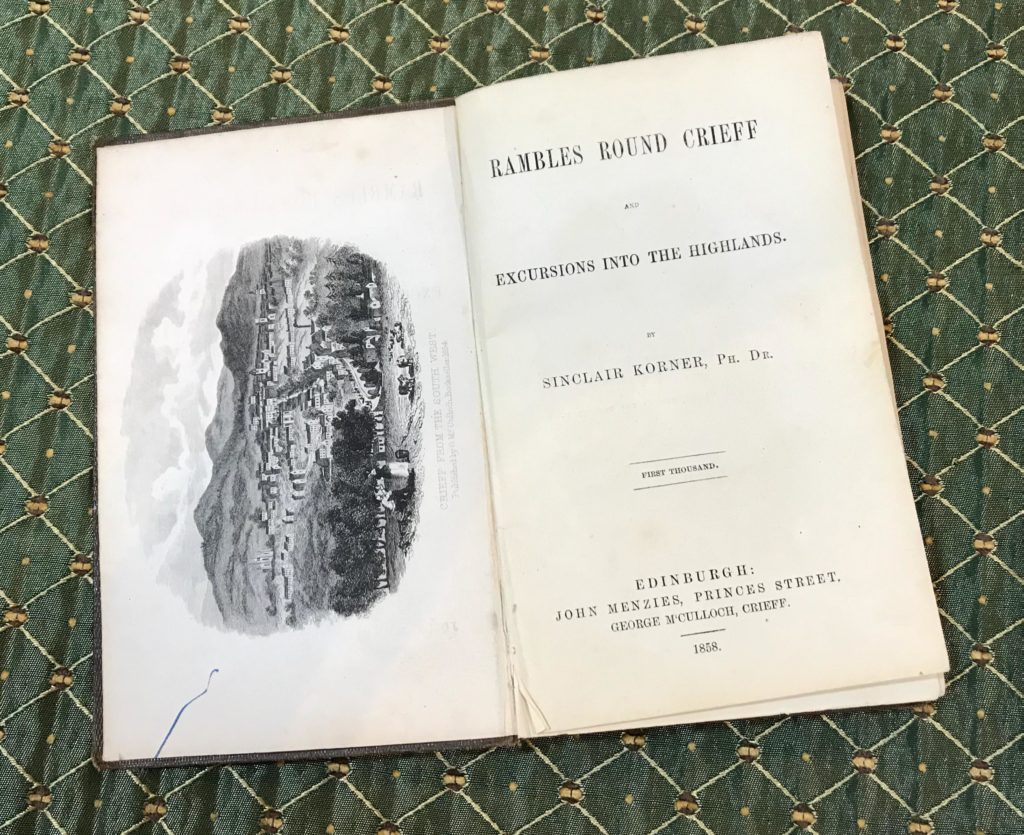
Sinclair Corner (he changed his name to Korner circa 1850) was born at Eastland, Orphir, Orkney, on 23rd February, 1823, to parents Andrew Corner and Hellen (Nelly) Baikie who had married in 1812.
In 1821, Andrew is recorded as a farmer at Swartabreck, Orphir, with 8 Black Cattle, 2 Swine, 1 Boat. Two of their several children, Sinclair and Philip, would both become teachers. Having spent his early life on Orkney, Sinclair turns up in Edinburgh on the 1841 Census, as a Journeyman Tailor, lodging with John Corner (occupation listed as ‘Clothing’) and family. Perhaps
John Corner was a relative.
Where Sinclair Corner was during the years, 1841 to 1845, remains a bit of a mystery, including when, where and how, he gained enough knowledge of French, German, Latin, Italian and Mathematics, to enable him to teach and translate. In ‘Rambles around Crieff’ he refers to the headmaster of the school (himself) teaching French and German because he had travelled on the
continent, but when exactly that was is difficult to determine from the information gleaned so far.
‘Sinclair Corner, Orphir’, appears in the Alumni records of enrolment for King’s College, Aberdeen, 1845-49, as one of many who ‘studied on the Masters of Art degree course but who did not graduate’. It was not unusual for students to attend various classes and if necessary, for future employment purposes, obtain a certificate directly from individual Professors, rather than to
actually graduate. Perhaps that is what Sinclair, did after attending courses on French, German, Latin, Italian and Mathematics, possibly at another university such as Edinburgh. However, he was obviously at King’s College, Aberdeen, for the first session of the 1845 – 49 course because at the end of it he was awarded first prize for the ‘Junior Greek Class’, notification of which appeared in the Aberdeen Press and Journal on the 1st April, 1846. There is no further mention of him in the University records and by the 24th April 1846 he is advertising himself in the Glasgow Herald, as one of the assistants in the English department of the High School, able to ‘devote his Afternoon Hours to private Tuition, in English, Latin, Greek and Mathematics.’
The next time his name appears is when he marries Frances Gratwick, in Brighton, in the autumn of 1849. She was born in Sussex and was working there as a servant on the 1841 Census, so it is possible that Sinclair met her, at some point after 1846, whilst on his travels to and from the Continent.
By the time of the Census taken on 30th March, 1851, their surname had changed to Korner and the couple were living in Edinburgh with daughter Fanny, 5 months old. Sinclair Korner is recorded as a Teacher of Languages and Mathematics. In 1852, the family moved to Crieff, where he took up the position of Schoolmaster at the Parochial School. From the time he arrived in Crieff he was calling himself, confusingly, Dr. Korner or Sinclair Korner or Sinclair Korner Ph. Dr.. Where, when and how he obtained the latter qualification we have yet to discover, as it was not being awarded in the UK until 1917! Germany was the only country awarding the qualification in the 1840s and it did not require the extensive study that is required today. However, as to how, and where, he acquired the qualification does not detract from the fact that he was obviously a very clever man.
Sinclair Korner is first recorded as a Borrower at Innerpeffray on 17th January 1853, when he took out ‘The Works of Mr. Abraham Cawley.’
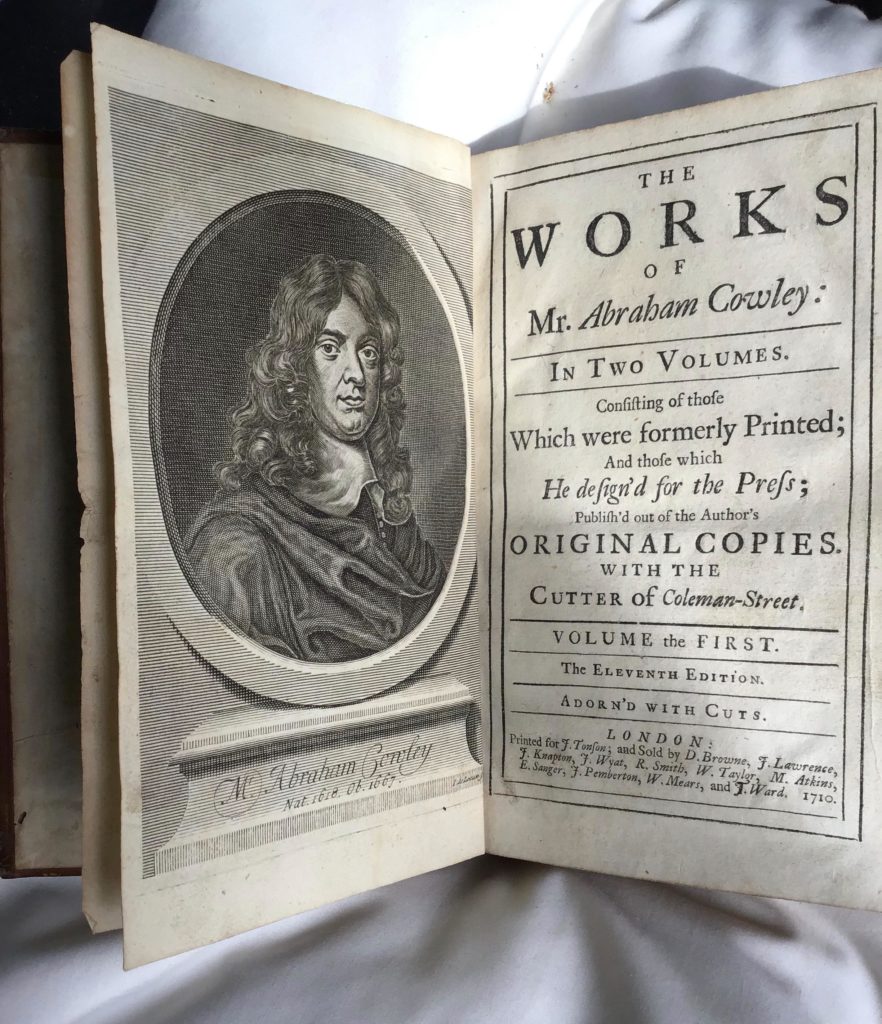
His name does not appear in the Borrowers register again until January 1858, when he is recorded as Dr. Korner. However, during those intervening years he had become well known in Crieff. His name regularly appeared in the local newspapers:- to publicise a new book he had written/translated; to advertise classes in both French and pure Mathematics ‘for men of business’ – advising that both these subjects are essential for the civil service examination; to promote his series of evening lectures on the laws of health and happiness; recording his frequent participation as a speaker at the Penny Readings, a popular entertainment held regularly in the Masons’ Hall, and also at the Crieff Fortnightly lectures; announcing his regular talks to the meetings of the Total Abstinence Society; his involvement on the committee of the Mechanics Institute. He was also writing long articles,
about the works of famous authors, playwrights and poets, and these appeared in newspapers north and south of the border.
He was obviously very forthright in his opinions and some of the articles and letters appearing in local, and national, newspapers were not always complementary about him, nor was he about others. From reading the reports it becomes obvious that he much preferred teaching older pupils, in higher level subjects. In November, 1856, when a new school was being built in Crieff, he wrote that he felt the parochial school should provide not just an elementary education but should move to Grammar or academy status, in order to provide young people with a complete education in the town. He wanted an assistant (well paid and housed) to teach the more elementary levels and in 1857 it was agreed that a second schoolmaster should be appointed. An advertisement appeared in the Strathearn Herald, on 28th March, 1857, for a second schoolmaster for the “Crieff Parochial Grammar School” to start the 1st May. The assistant did not stay for long and was gone by the 1859-60 session.
However, the annual inspections of the school had not always run smoothly for Dr. Korner and on one occasion there were no pupils present when the examiners turned up! On another occasion he is reported as having ‘got into a tussle’ when he challenged one of the inspectors on his examination of the pupils, saying that the man did not understand his
system which was ‘different and greatly improved, superior to those of other schools and that only he was qualified to examine them.’ At other times the examiners were full of praise – ‘proficiency displays in English, reading, history and French were highly complimented’.
There were other disagreements, especially when his support for the increasing of teachers annual salary from the standard £35, appeared widely in the newspapers. James MacRosty, clerk to the heritors and minister of Crieff, was particularly scathing of him in a letter to The Scotsman of October, 1861. He pointed out that, at Mr. Korner’s request, the heritors had erected a ‘handsome new schoolroom to accommodate 150 pupils’ and voluntarily contributed largely towards the salary of an assistant. However the number of pupils attending the new school does not seem to have reached anywhere near its capacity and at the time of Mr. MacRosty’s letter, there were possibly just twelve pupils in attendance that time. Whilst Mr. Korner’s ccomplishments were not in question, the fact remained that the parish school in Crieff was nearly deserted. Mr. MacRosty went on to submit that that ‘£35 per annum, with a free house and garden, besides fees and requisites, afford Mr. Korner liberal renumeration for the work done’. He closes by pointing out that the sole object in giving Mr. Korner the capitation grant, in addition to his salary, was to stimulate him to activity, by making his own pecuniary gain depend in part upon the prosperity of the school. Offering ‘payment by results’ is not such a modern idea after all!
No wonder Sinclair had little time to borrow books again from Innerpeffray until once in January 1858 and then not again until December 1861. Another gap from then until June 1862, when he begins to borrow books on a more regular basis. It would appear, from the titles of books, that on many occasions, he was probably borrowing them to complement his teaching. Perhaps he was swotting up on the facts before he taught them to his classes. At other times he was presumably reading for pleasure.
Books on historical topics feature strongly in his borrowing, as do the various Chambers stalwarts – The Book of Days; Chamber’s Repository; Cyclopedia of English Literature; Chamber’s Papers; Chamber’s Educational Journal – all crammed full of information and facts about everything you might want to know.
London 1753
The novels and poems of Sir Walter Scott, the Plays of Shakespeare, Chaucer’s Canterbury Tales, other novels written by authors of the time, and a variety of books referring to the discovery of foreign lands, foreign travel and spending time in places such
as Africa and Australia. He also borrowed books that reflected his wider interests and knowledge of languages.
In December 1864 he brings his daughter and son to the library to borrow books for the first time. As both his wife and daughter were called Fanny (Frances) it is difficult to decipher at times whether it is mother or daughter doing the borrowing. There are
numerous entries in the name of Miss Korner, but when the entry is Fanny Korner we are unable to be certain which one it is, except by looking at the choice of books borrowed and even then, that is no guarantee. There are far more entries for just Sinclair Korner, Crieff, than for Dr. Korner, and his occupation as a teacher is not recorded until after December Son, Sinclair jnr. is clearly recorded each time he borrows.
Extracts from the Borrowing Record for the Korner family. Entries just under Sinclair Korner, Crieff, unless shown otherwise. Book titles as recorded in theRegister.
- 17/1/1853 The Works of Mr Abraham Cowley
- 25/1/1858 Canterbury Tales Dr. Korner
- 27/12/1861 Don Quixote; Mémoires de Maximilien de Bethune;
- Chambers Book of Days
- 18/6/1862 Agathos or Sunday Stories; Book of Days; The History of St Kilda
- 2/8/1862 History of England
- 4/10/1862 Chamber’s Cyclopedia of English Literature
- 16/6/1863 Chamber’s Repository; Lowell Offering; The Eliphant; Chamber’s Papers;Plurality of the World
- 2/1/1864 Laws & Acts of Parliament made by King James I; Pictorial Gallery;The Plays of Shakespeare
- 15/10/1864 Chamber’s Cyclopedia of English Literature; The Lamplighter;Little Robertson
- 7/12/1864 Scotts Prose work; Bride of Lammermuir; Katie Stewart Miss Korner
- Five years of a hunter’s life in South Africa; Chamber’s Papers Sinclair jnr.
- 13/5/1865 The Roving Englishman; Book of Days; Chamber’s Papers; Lamartines Travels in Africa
- 21/6/1865 Chamber’s Repository; Life of Nelson; Queechy; Chamber’s Papers Miss Korner
- 7/9/1865 Five years in South Africa; Chamber’s Library for Young People; Book of Days; Susan Hopely Fanny Korner
- 31/10/1865 Life of Oliver Cromwell; Ten Years in Australia; Memoirs of Englishwomen Fanny Korner
- 5/5/1866 Tacitus Dr. Korner
- Chamber’s Repository Miss Korner
- Tales of a grandfather; Conquest of Florida Sinclair jnr
This book bears the signature James Drummond, 24th November 1649. James was the father of
David Drummond, 3rd Lord Madertie, founder of the Library of Innerpeffray, and the book is part
of the founders original collection.
- 20/6/1866 Scot’s Discovery of Witchcraft; Dr. Korner
- Chamber’s Repository Miss Korner
- Chamber’s Repository; Ferdinand and Isabella Sinclair jnr.
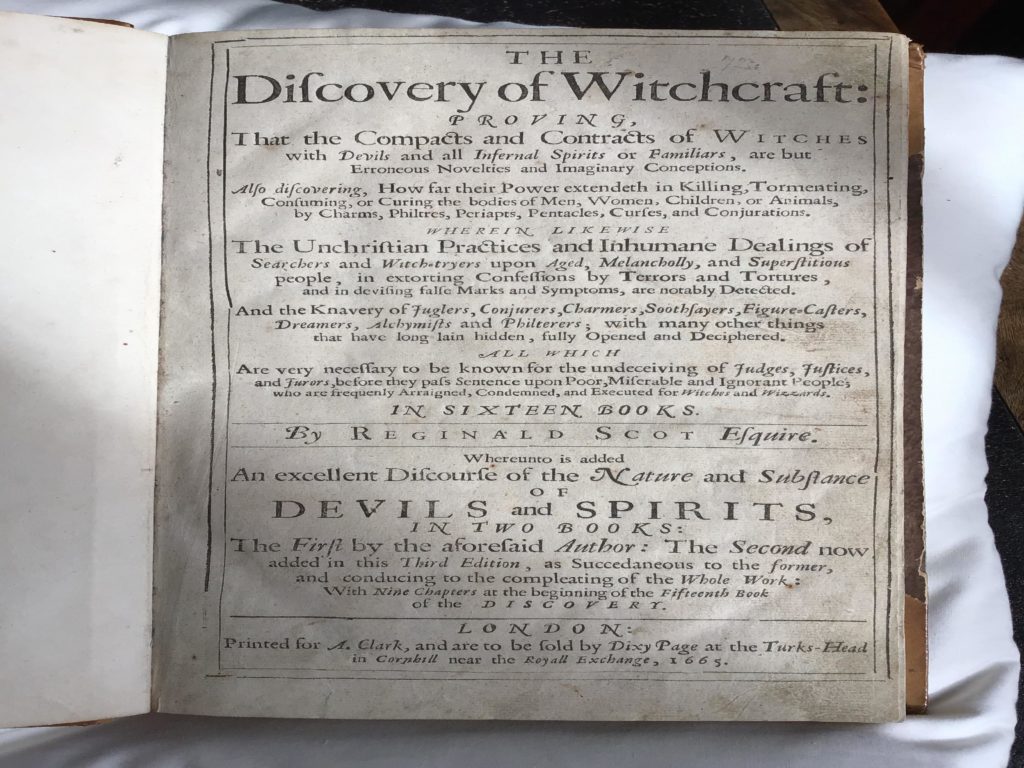
- 27/12/1866 Chamber’s Educational Journal; Ivanhoe; Chamber’s Cyclopedia of English Literature Dr. Korner
- Book of Days Miss Korner
- 9/2/1867 Woodstock; Chamber’s Educational Journal
- Chamber’s Papers Fanny Korner
- 2/1/1868 Chambers Encyclopedia; Salmagunds; Chamber’s Papers Dr Korner
- 27/11/1869 History of Frederick II of Prussia; Waverly; The Abbott; Tails of Crusaders Fanny Korner
- 8/1/1870 Antiquary; Old Mortality; Guy Mannering Miss Korner
- 10/12/1870 Hesiodus Greek & Latin Ph D Sinclair Korner, Schoolmaster
- 30/11/1872 Redgauntlet; The Talisman Sinclair Korner, Schoolmaster
- 16/4/1873 Cicero – of the nature of the Gods Sinclair Korner, Teacher
- 29/8/1873 The Plays of Shakespeare; Bacon’s Works; Canterbury Tales; Spencer’s Faerie Queen Dr Korner, Teacher
- 10/1/1874 Lydgates’ Fall of Princes Sinclair Korner, Teacher
- 28/2/1874 Bacon’s Works Dr Korner, Teacher
- 20/5/1874 Plato’s Dialogues Sinclair Korner, Teacher
- Essays Moral & Humorous Miss Korner
- 31/7/1874 Plutarchs Lives of ye Greeks and Romans 2 vols Sinclair Korner, Teacher
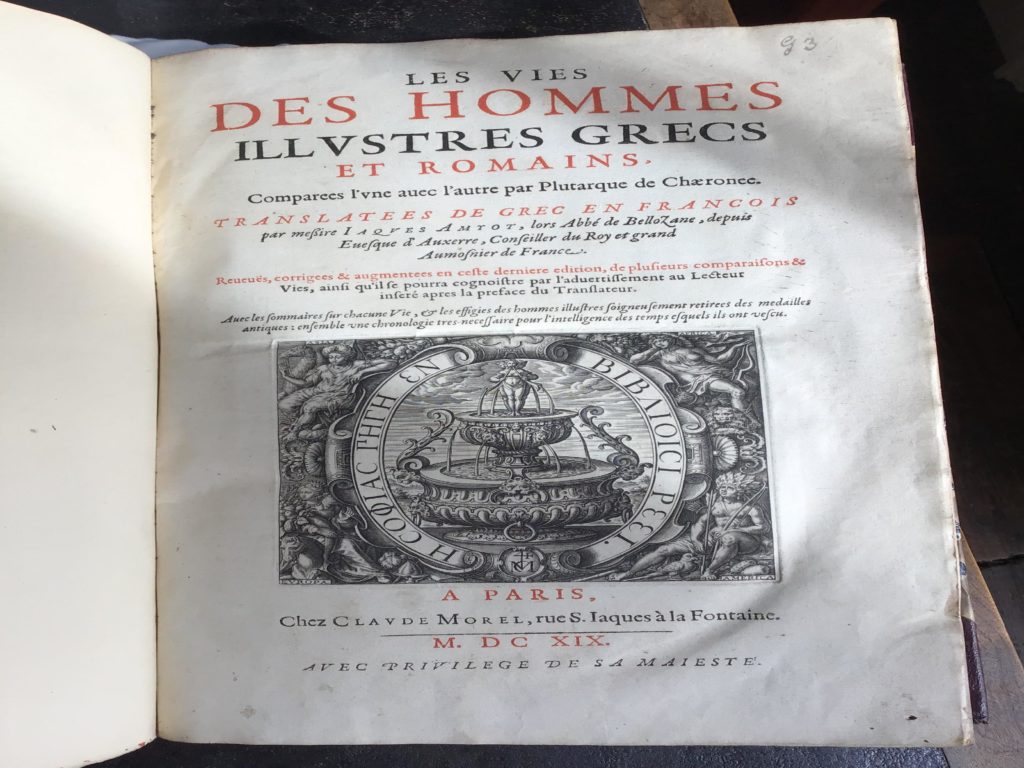
- 25/8/1874 Appian in French – Des Guerres des Romains Sinclair Korner, Teacher
- 31/12/1874 Antiquary; Woodstock Sinclair Korner, Teacher
- 12/4/1875 Last books returned to the library
On the 3rd July, 1873, an item had appeared in the Dundee Courier, noting that at a recent meeting of the School Board, Crieff, it was unanimously agreed to accept the resignation of Dr Korner, the Board agreeing to give him a retiring allowance of £50 per annum for life. Little did the members of the Board realise that they would be paying him for the next thirty six years! The
family remained in Crieff until 1875, when they moved back to Edinburgh. Mrs. Korner died there in 1879, aged 57, and in the same year, their son, Sinclair, emigrated to New Zealand, arriving in Dunedin on June 4th. Daughter, Fanny, continued to live with her father.
Dr. Korner did not retire quietly and his name continued to appear frequently in the newspapers. He contributed articles on literature and a variety of other topics, many finding their way into newspapers all over the UK. Those articles appearing in the more local papers often contained his opinions and reflections on local topics, especially with regard to his position on the local school board in Edinburgh. At one particularly lively meeting of the latter, some of those present were keen to know exactly where he had gained his qualifications and what they actually were. Having seen his name recorded all three ways, they wanted to know whether he was plain Mr. Korner, Sinclair Korner M. D. or Sinclair Korner Ph. Dr.. Needless to say, the man himself was not present at the meeting to be able to provide them (or us!) with the required information. Sinclair and daughter, Fanny, continued to live in Edinburgh until the late 1880s when they moved to Orkney, and to Sinclair’s childhood home at Eastland, Orphir. Right until his death, he was writing articles on literature and on political history. Some of his comments about the behaviour of members of both the House of Lords and House of Commons, and particularly about those elected to represent the people, could easily be referring to the present day! He continued to voice his opinions on all sorts of local topics, such as crofting, schooling and anything else that he obviously felt required his attention. He was also a very benevolent man and made regular financial donations to the Balfour Hospital, Orkney, and to Edinburgh Royal Infirmary, as well as other financial contributions to differing good causes.
During some of their years on Orkney, Fanny appears to have been teaching, possibly in Kirkwall. She accompanied her father on several ‘holidays’ each for about three weeks in June, to Stonehaven, Aberdeenshire, their names and places of residence being reported on the Visitors Lists published in the Stonehaven Journal.
What was possibly Sinclair Korner’s final article, ‘A Tramp Tour Fifty Years Ago’ – a wonderfully descriptive account of a walking tour he undertook in Perthshire, in August 1858 – was published in The Orcadian on 28th August 1909. Sinclair Korner died on 16th October 1909. Obituaries indicate that he was well respected, possessed of a broad mind and a strong personality, had
high ideals as a man and an educationalist, was an accomplished scholar, an able and kindly teacher, a cogent reasoner and a clear thinker. Perhaps a man we may all have enjoyed knowing.
A few years after her father’s death, Fanny returned to live in Edinburgh. She had never married and died there in 1940, at the age of 89. Her brother, Sinclair, as already mentioned earlier, had emigrated to New Zealand in 1879, and travelling on the same ship was a Miss F. Prentice, from Midlothian. We might guess that they either knew each other before they both decided to
emigrate, or they met during the voyage. Whichever it was, Sinclair Korner jnr. married Miss Fanny Prentice and they would go on to bring up seven children in the locality of Wingatui, Otago. Sinclair worked all his life as a carpenter and one has to wonder what his father felt about that. Fanny died in 1891, aged 40, and Sinclair died in 1915, aged 63. Many of their descendants still live in Otago and the wider Dunedin area.
GF

